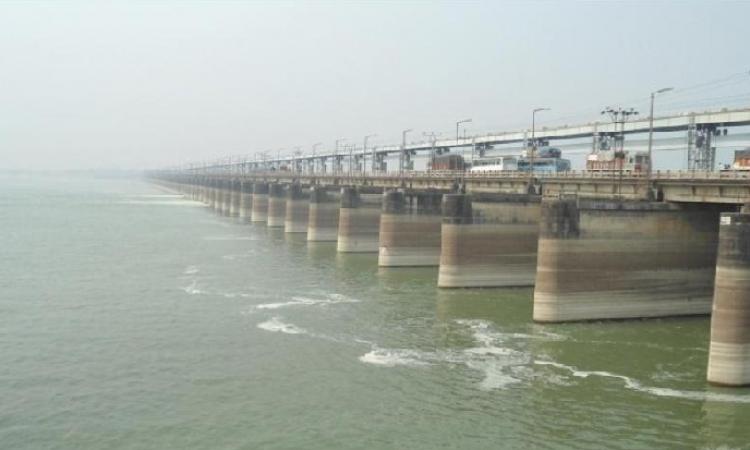
Navigation lock at Farakka Barrage redesigned for Hilsa migration
This monsoon, the Hilsa fish will be able to swim down the Ganga all the way up to Allahabad from the Bay of Bengal. The migration of the fish till Allahabad had been stopped after the Farakka Barrage was built on the Ganga in the 70s. The navigation lock in the barrage that blocked the free movement of Hilsas has now been redesigned to ensure smooth and safe migration of the Hilsa shoal during the three mating seasons. The provision has been made in consultation with ICAR Central Inland Fisheries Research Institute, Central Water Commission and Farakka Barrage Project Authority.
Between 2015-18, four new polluted stretches of rivers identified in Uttarakhand: CPCB
In its recent report, the Central Pollution Control Board (CPCB) has identified four more polluted stretches of rivers--Kichha, Kalyani, Nandour and Pilkhar--in Uttarakhand in the period between 2015 and 2018. With this, the total number of polluted stretches of rivers in Uttarakhand has shot up to nine as against five recorded by the board in 2015. As per the activists, the revelation implies that the civic and industrial wastes are not being handled at the village and city level. Also, it has been suggested that the state government must focus on decentralising the wastewater management system for the treatment of untreated civic waste in smaller towns.
Bhopal tagged as low-water availability zone
Concerned over the water crisis in the city, the authorities have tagged Bhopal as a 'low-water availability zone'. With this, a ban has been put on drilling borewell for any purpose other than drinking water in the city under Madhya Pradesh Peyajal Parirakshan Adhiniyam 1986. The authorities have also ordered a fine of up to Rs 2,000 or two years of jail or both in case of violation. For the past two years, rainfall has been less than normal in the city. Moreover, the major source of drinking water in Bhopal, the Upper Lake is expected to touch the dead storage level by April.
Mass fish death in Narmada dam: Experts say tremors may be the cause
Last month, there was sudden mass death of fish in Narmada dam in Gujarat raising an alarm about the quality of water in the dam. Following the incident, the Gujarat Pollution Control Board (GPCB) has begun the comprehensive process of qualitative and quantitative evaluation of the dam water. As per the GPCB officials, the mass fish death occurred due to the turbulence at the base of the dam that possibly caused the water to temporarily turn toxic. The board has sought the seismology report of the Narmada basin from January 25 onwards to ascertain if a tremor could have triggered the toxicity.
Nagpur civic body de-chokes 3,600 trees along cement roads
In the last two-three months, the Nagpur Municipal Corporation (NMC) has de-choked nearly 3,600 fully-grown trees along roads which were concretised under phase I and II of the cement concrete road project. The NMC has also proposed to de-choke trees alongside tar roads and pavements which do not come under the concretisation project. The NMC has put forward the plan to plant and maintain trees along roads proposed to be concretised under the phase-III of the project.
This is a roundup of important news published between February 5 - 12, 2019. Also read policy matters this week.
/articles/after-40-years-hilsa-migrates-allahabad-again